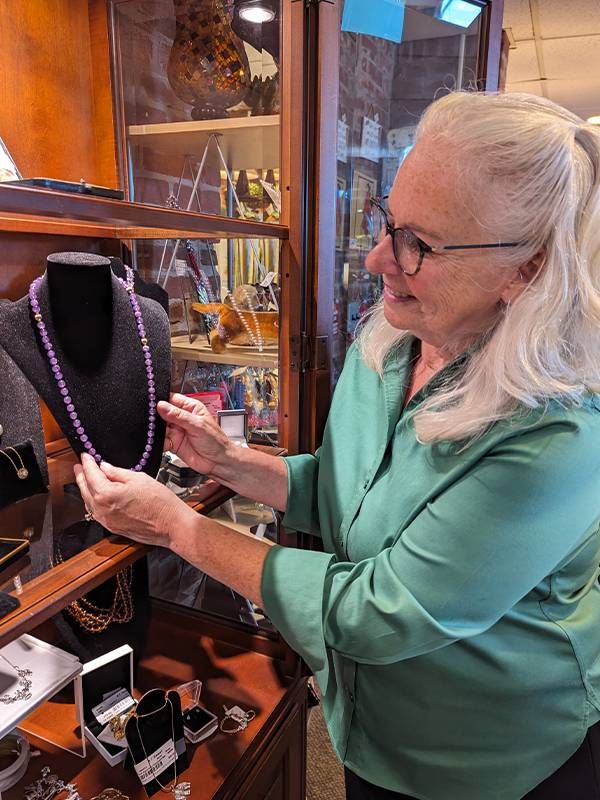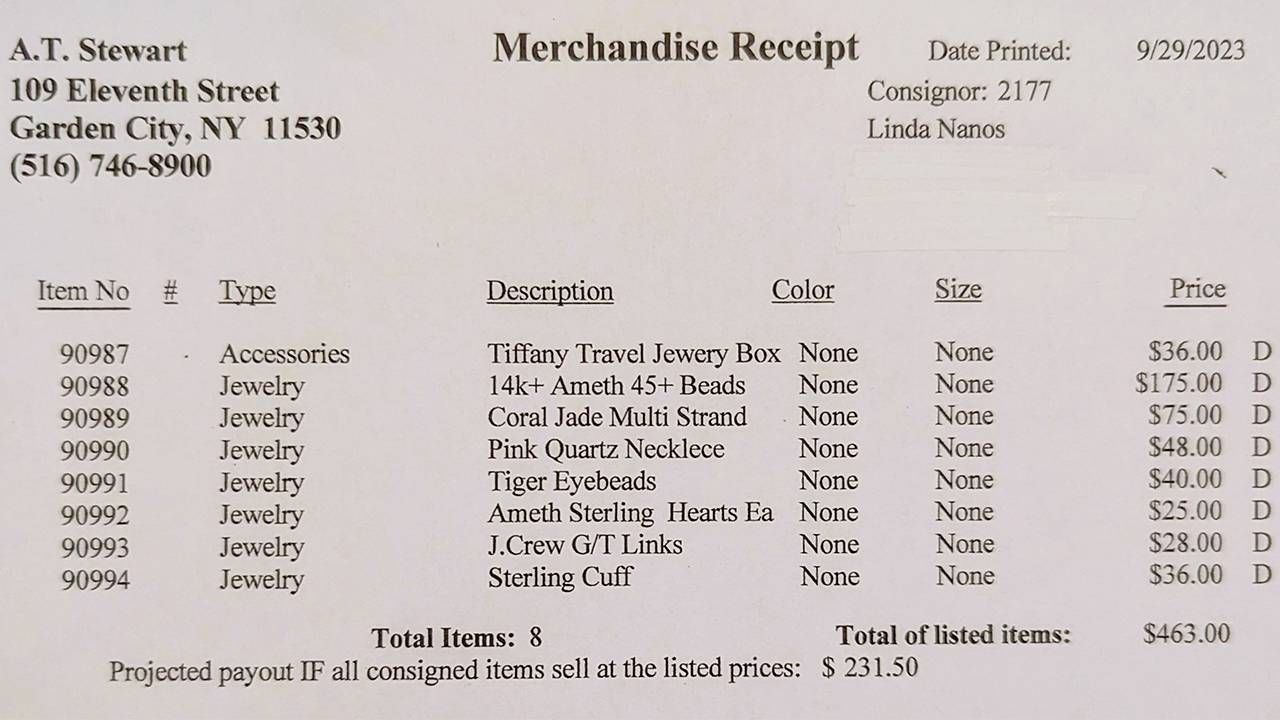Should You Consign Your Castaways?
Call a few consignment stores to see if they accept what you want to sell — and to see if you need an appointment to find out if they will represent you
In my campaign to declutter my home, I'm carting boxes and bags to a thrift shop on a regular basis, but some of my belongings seem too valuable to donate without monetary compensation.

I was aware that there are consignment shops that sell your items for you in exchange for a share of the proceeds — usually a percentage of the sale price — agreed in advance. I decided to try it out, and learned that if you want to avoid frustration, know before you go.
There are three consignment stores near me. My assumption that they are all for-profit businesses was wrong. The first shop I visited is a non-profit organization in the lower level of a charming house built in the late 1800s; the money earned from sales contributes to the upkeep of the home and supports the local historic society.
This store did not accept any clothing but was a good place to take some of my jewelry. I entrusted it with several pieces of semi-precious gems — tiger's eye, jade and amethyst — that I could let go of without too much remorse.
Dealing with Remorse
Remorse is an emotion to confront when giving away belongings, one I have experienced on numerous occasions, including at this consignment store. My mental process is to try to project how I will feel when my belonging is gone.
Remorse is an emotion to confront when giving away belongings, one I have experienced on numerous occasions.
It's generally a good idea not to second-guess once you identify the giveaways, but at least sleep on it or you may find yourself going through a box put out for recycling in the early morning hours, as I have.
Despite following this process, I felt remorse when the amethyst necklace was valued greater than I thought, and I considered whether I should keep it. I opted to let it go after working through the emotions and reasoning that I haven't worn it in years, I might receive money for it, the organization will benefit and someone will wear it.
Do a Little Homework
It's helpful to have an idea of the price you want to be offered for your valuables. If you have an old appraisal or can find something similar online, you can go to the store with a plan. I was fortunate at the charitable consignment store that the manager made a sincere effort to price fairly and promised to revise her valuation if her consultant jeweler thought the necklaces were worth more.
The process is time consuming, and most stores require that you make an appointment. I was at the first store for an hour pricing my necklaces. A contract was written that listed my jewelry pieces and their value and stated my 50% share of anything sold.
I left the store feeling that I was treated fairly and felt optimistic that I might receive compensation. The timing was also favorable because it is several months before the winter holidays and sales are brisk for items like jewelry that make suitable gifts.
Since this shop didn't accept clothing, I asked the manager if she could suggest a store that does. She referred me to the second consignment store, which sold only clothing. I visited its website and discovered that I had nothing that fit its guidelines. There were lists of designers that they accept and those they don't.
Designer Dresses Only

The biggest obstacle was that they didn't want anything more than three years old. My mission was to find a place to take my clothing that I had not worn for years and accessories that belonged to my mother, who died more than five years ago.
Consignment stores always favor popular designer goods that they know will sell, but this was overly restrictive for me. Even if I had one or two pieces that fit their guidelines, a new seller had to have at least 15 items to make an appointment. Their ideal partner is a person who maintains an up-to-date fashionista wardrobe and routinely turns over clothing and accessories.
The third consignment store was called Thrift Shop and Consignment. I viewed photos of the shop online prior to going, so I had an idea that they would consider a large variety of my belongings. It was packed with jewelry, clothing, collectibles and home goods. I called for an appointment and loaded up a bag ranging from pocketbooks to porcelain statuettes. I drove twenty minutes to the shop.
A Humbling Compromise
The owner, Cooky, if I might use a dated expression, was a tough cookie. The best advice I can give for consignment selling is to leave your ego at the door. The managers know what they can and cannot sell. There may be a belonging that was meaningful or precious to you at one time but is no longer in use, but you probably still have some pride in the object.
The best advice I can give for consignment selling is to leave your ego at the door.
Cooky set aside three items from my large bag and made me an offer: $15 for two evening bags and one Italian porcelain statuette. I violated my own advice and tried to negotiate; that's when Cooky explained her offer to me. She said that the consignment business was challenged by online selling that didn't require any overhead, while she had to pay rent to stay in business.
The owner further complained that the COVID pandemic changed people's shopping habits and her customers no longer dress up the way they once did. She would only accept consignment of high-priced designer goods. I humbly took the $15 and considered myself three belongings lighter, if not richer, and wished her luck selling my items.
None of the three stores was interested in carrying one-time use gowns. A friend in another state was interested in selling two mother-of-the-bride gowns that cost several hundred dollars each and were only worn for the weddings. She contacted stores that listed gowns in their inventory.
The process involved completing an application to get on a waiting list, with the disclaimer that applying as a New Consignor did not guarantee an appointment and the wait could be up to eight weeks.
Some stores require sending photos of the items in advance to avoid contentious interactions with sellers. Space in any shop is a premium and they don't want to hold items that are out of season or not likely to be sold.
Find the Right Niche
Given the consignment market as it is, you might consider an alternative to one-time use gowns that you may not be able to sell, renting formal wear. There are popular clothing rental companies online and many stores now offer the option.

Each consignment store has its niche, and if you find the right match, it can be a viable option for you. I would go back to the first store associated with the historical society. It was a pleasant experience, although it remains to be seen what will be sold. The second store was not appropriate for my belongings. The thrift and consignment shop will not get another visit after spending time and gas to be paid a pittance.
Finding appropriate ways to dispose of belongings may include consignment, but it requires that you do your homework first to find a store that will handle what you want to sell. Above all, approach the process as an objective business deal without attachment.


